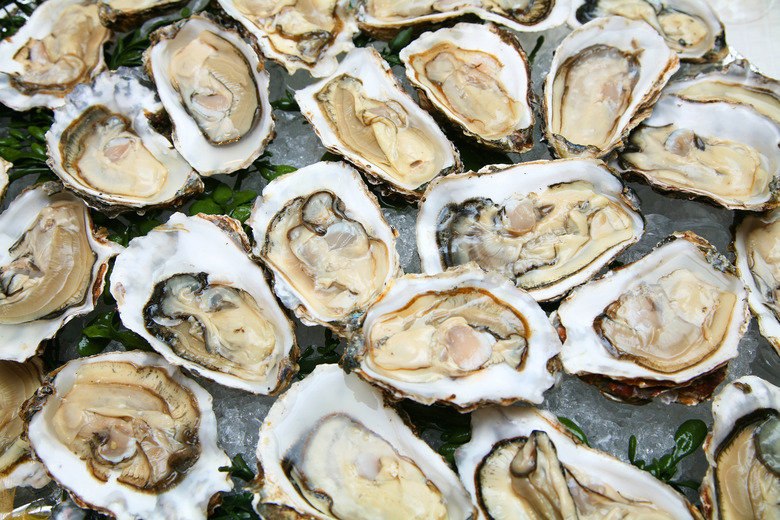Woman Dies Of Flesh-Eating Bacteria After Eating Raw Oysters
Jeannette LeBlanc, a woman in Texas, recently died after inadvertently eating flesh-eating bacteria from a serving of raw oysters. This isn't the first time oysters have made people sick, but it might be the most grotesque. If you're particularly squeamish or don't want to ruin the delicacy for yourself forever, we recommend reading the rest of this article with caution. It is important, though, to know the risk of eating these filter-feeders and how to keep yourself safe before indulging.
LeBlanc was on vacation in Louisiana with her friends and family, going crabbing on the coast and munching happily on the local food. She picked up a bag of raw oysters from a market in Westwego — and shortly after, her health took a turn for the worse.
After shucking and eating approximately two dozen raw oysters, her body went through an alarming response. Her wife, Vicki Bergquist, described the reaction to KLFY-TV.
"She started having extreme respiratory distress, had a rash on her legs and everything," Bergquist described.
In the 48 hours that followed, LeBlanc developed severe rashes and sores on her legs. After rushing to the hospital, LeBlanc was told by attending doctors that she had vibriosis, a condition caused by certain flesh-eating bacteria of the genus Vibrio. (Another prominent food- and water-borne illness, cholera, is caused by a different species in the same genus.)
According to the Centers for Disease Control and Prevention, vibriosis can be contracted by eating raw or undercooked shellfish or by exposing open wounds to brackish water. The illness affects 80,000 unfortunate victims annually, and while most are able to recover, LeBlanc was not one of them. After 21 days of horrific battle against the flesh-eating organism, LeBlanc passed away on October 15th, 2017.
Vicki Bergquist is now dedicated to raising awareness of vibriosis so that other oyster-loving vacationers don't expose themselves to the same level of risk.
"If we had known that the risk was so high, I think she would've stopped eating oysters," Bergquist told KLFY-TV.
Oysters aren't the only dangerous food that's sold around the world. Before booking your next vacation, evaluate the risks of the world's 25 most dangerous food destinations.
